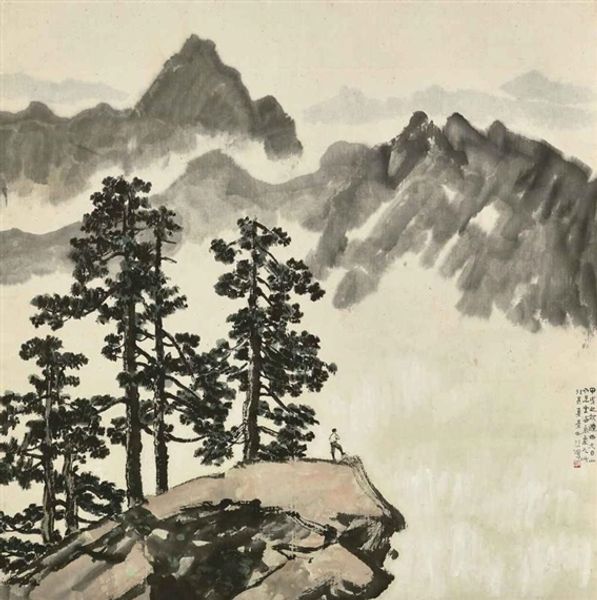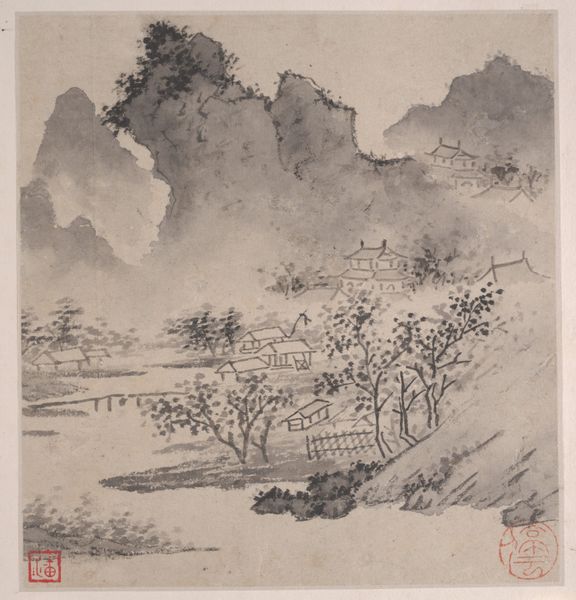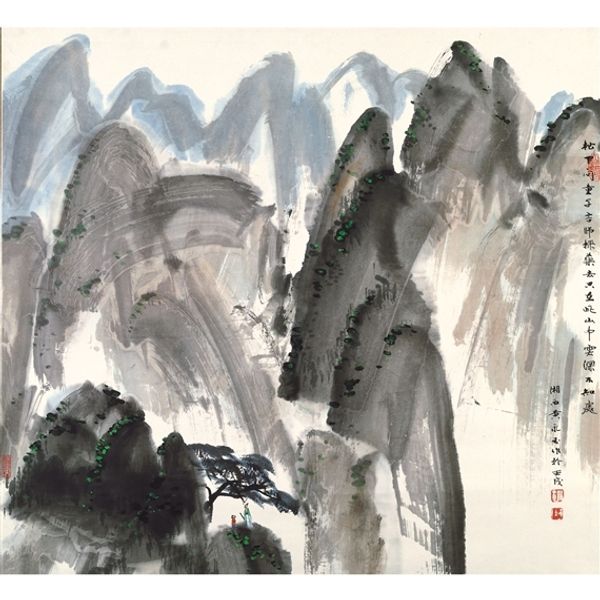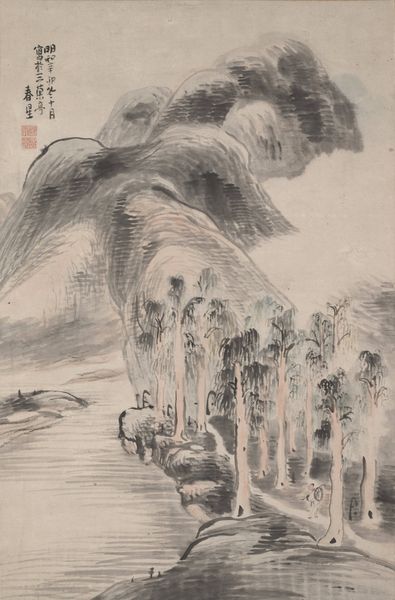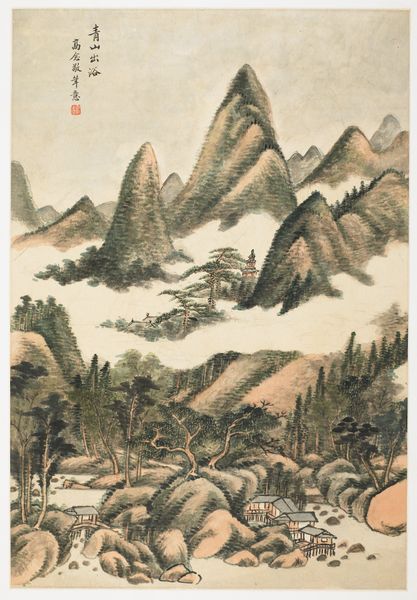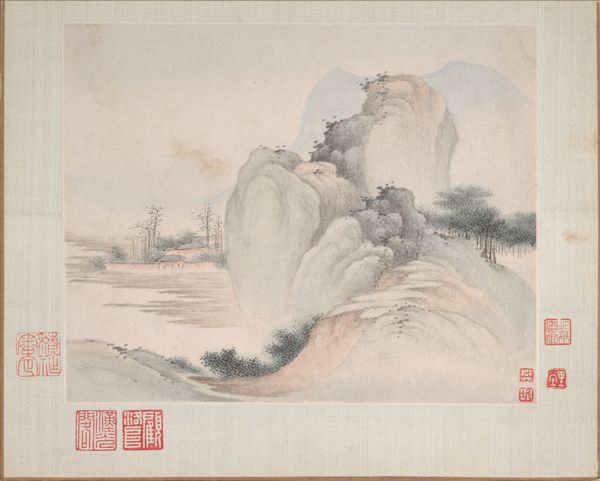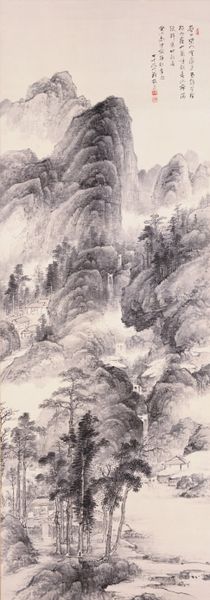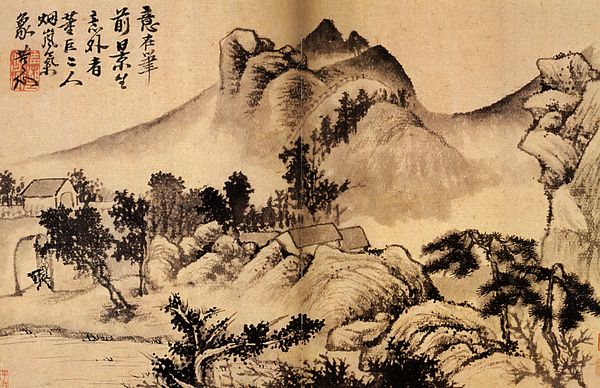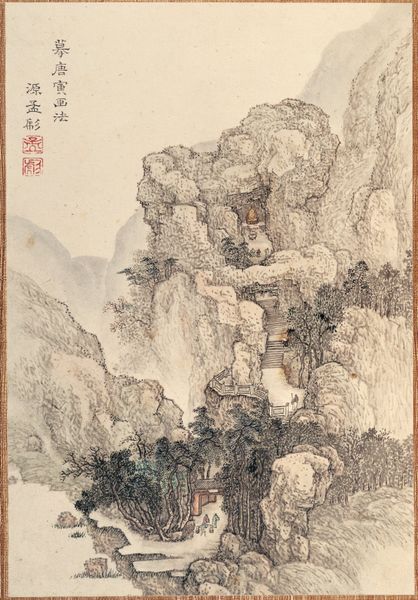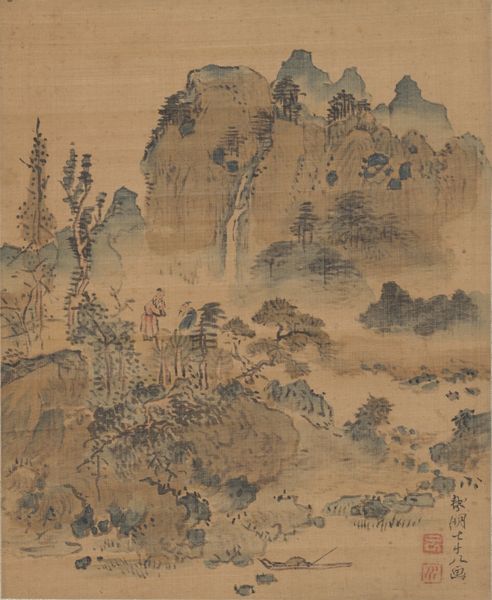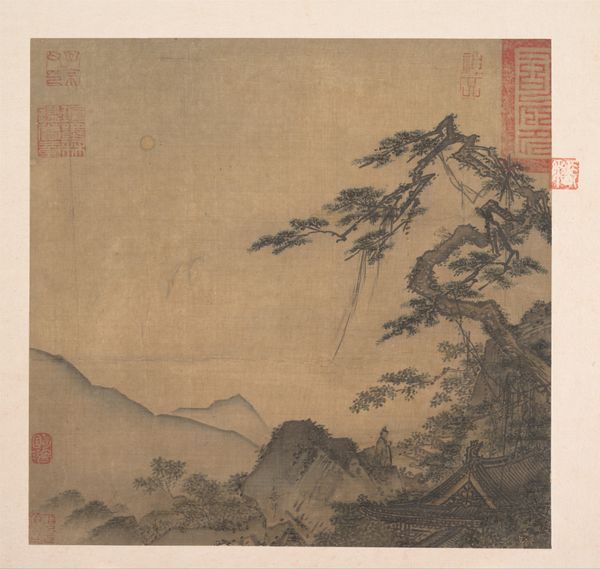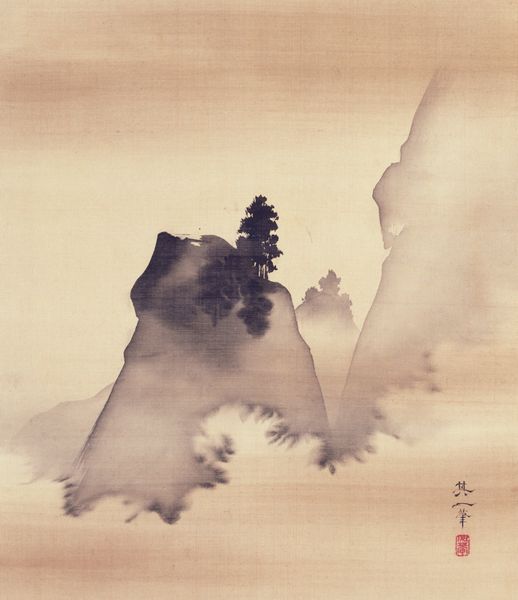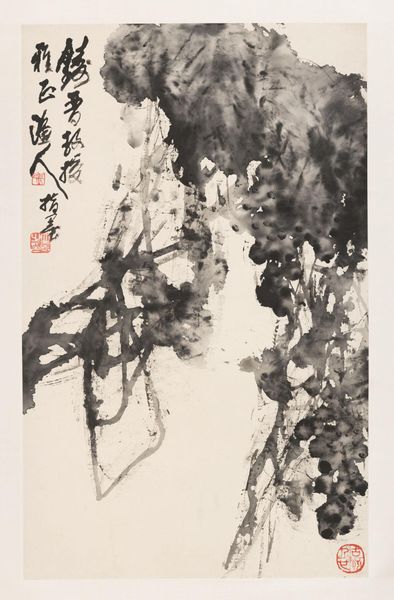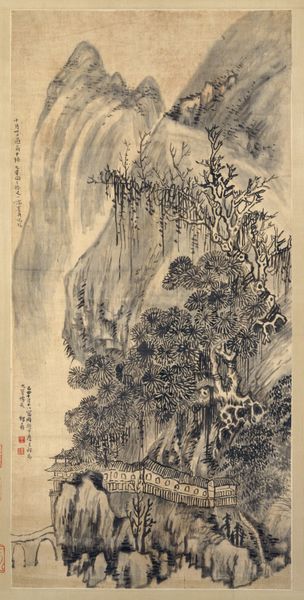
ink
#
ink painting
#
asian-art
#
landscape
#
ink
#
geometric
#
watercolor
Copyright: Public domain China
Xu Beihong created this ink and color on paper landscape painting of Mt. Lushan sometime before 1953. It shows how traditional landscape painting could be used to address contemporary concerns. Throughout Chinese history, mountains have been venerated as sacred places and symbols of stability. Here, Mt. Lushan is depicted using traditional brushwork techniques. The monochrome ink creates a sense of timelessness, connecting this image to a long lineage of landscape painting. Yet, Xu Beihong was working in a China that was undergoing radical social and political change. As an academic painter trained in Western realism, he sought to modernize Chinese art. His landscapes often served a public role, promoting national identity during times of war and revolution. To understand this painting fully, we need to research the cultural significance of Mt. Lushan. We also need to know about Xu Beihong's role in shaping Chinese art education in the 20th century. It is through this kind of historical contextualization that the painting's meaning becomes clear.
Comments
No comments
Be the first to comment and join the conversation on the ultimate creative platform.
